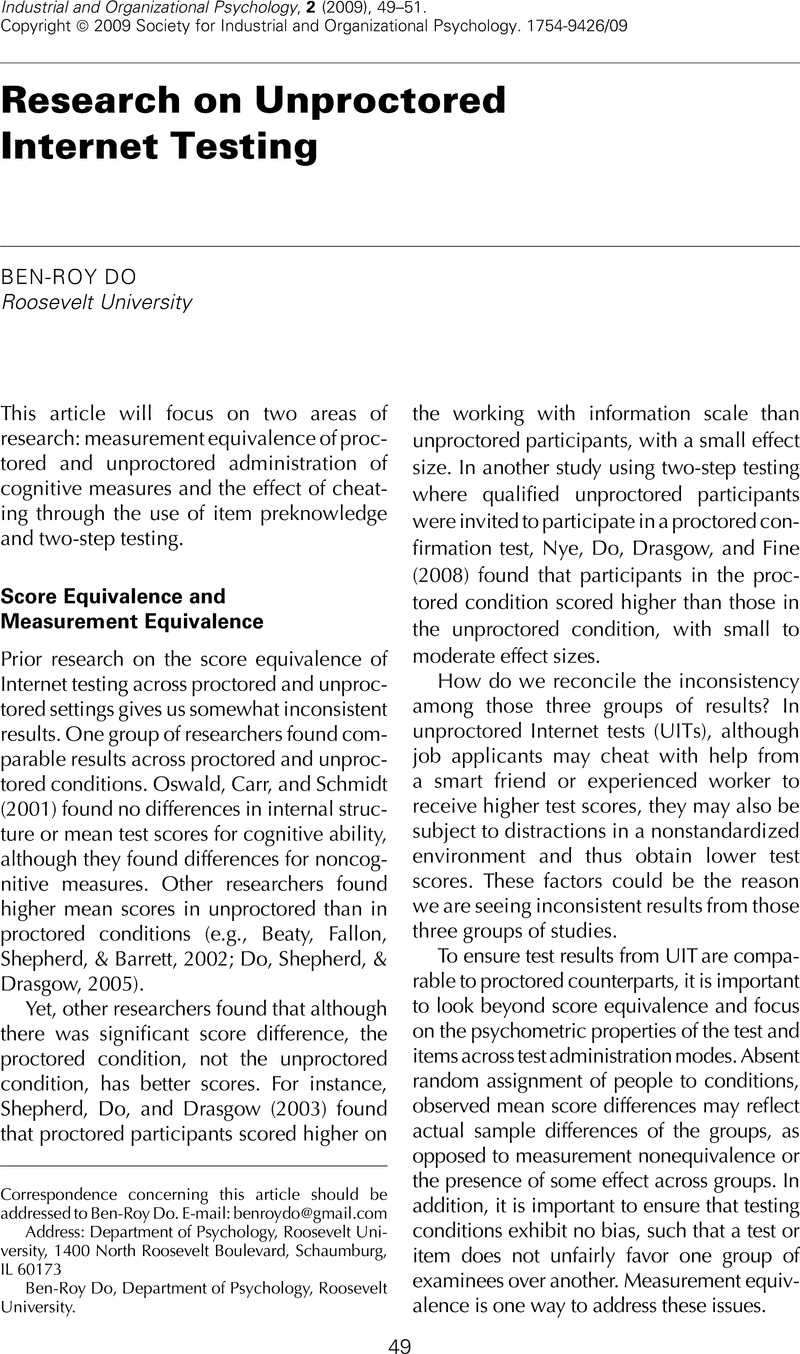Crossref Citations
This article has been cited by the following publications. This list is generated based on data provided by Crossref.
Tippins, Nancy T.
2015.
Technology and Assessment in Selection.
Annual Review of Organizational Psychology and Organizational Behavior,
Vol. 2,
Issue. 1,
p.
551.
Diedenhofen, Birk
and
Musch, Jochen
2017.
PageFocus: Using paradata to detect and prevent cheating on online achievement tests.
Behavior Research Methods,
Vol. 49,
Issue. 4,
p.
1444.
Steger, Diana
Schroeders, Ulrich
and
Gnambs, Timo
2020.
A Meta-Analysis of Test Scores in Proctored and Unproctored Ability Assessments.
European Journal of Psychological Assessment,
Vol. 36,
Issue. 1,
p.
174.
Altmann, Tobias
and
Kapoor, Niket
2021.
Personality Assessment To-Go.
Zeitschrift für Psychologie,
Vol. 229,
Issue. 4,
p.
214.
Lin, Linda
Foung, Dennis
and
Chen, Julia
2023.
Assuring online assessment quality: the case of unproctored online assessment.
Quality Assurance in Education,
Vol. 31,
Issue. 1,
p.
137.





